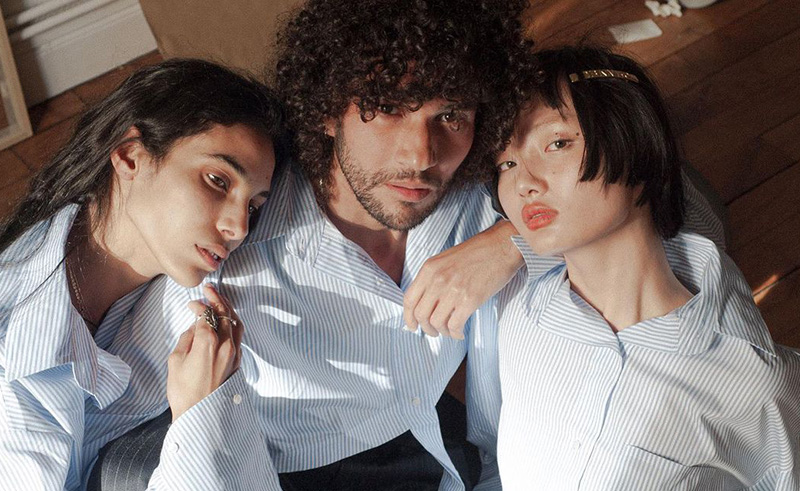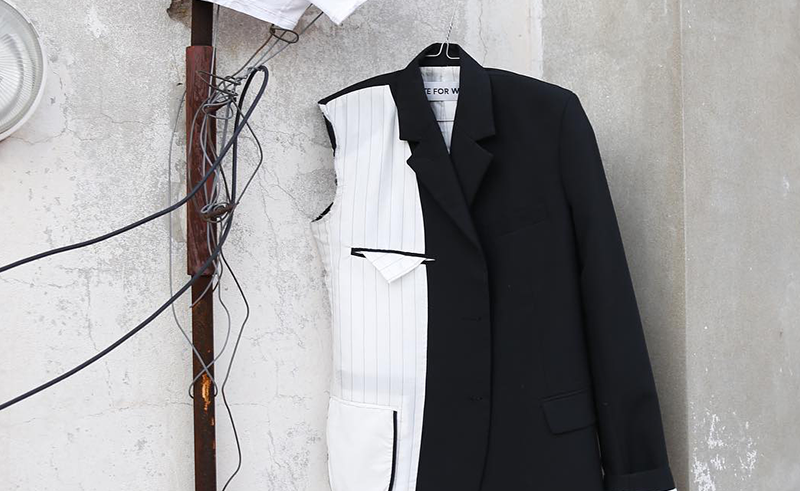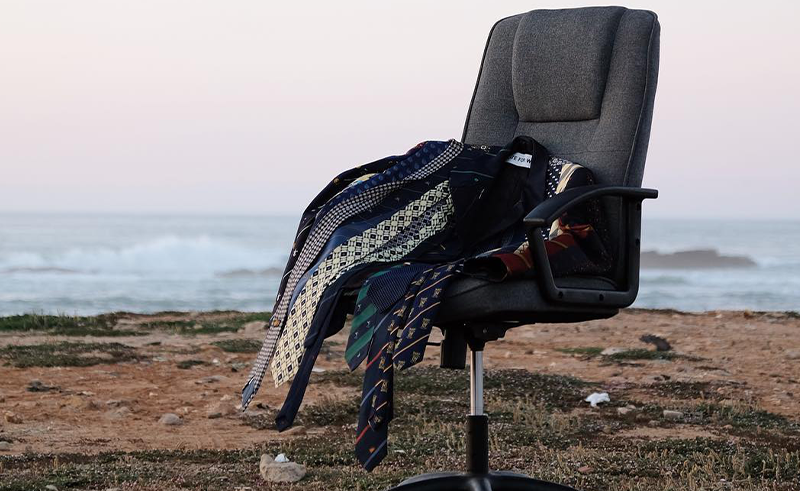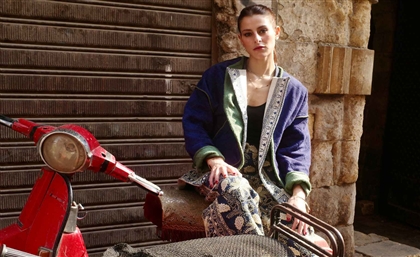Late For Work is the Moroccan Label Clocking Out in Style
By combining two contrasting environments, designer Youssef Drissi reconstructs notions of professionalism.

“I can describe my work as shifted, decostructured, and full of contradictions, just like the world we live in.”

For Moroccan artist, designer Youssef Drissi, his earliest memories were spent immersed in art - particularly, his father’s, whose easels and palettes were a constant companion for Drissi. While his formal passion for fashion emerged later, those childhood experiences undoubtedly shaped him into the fashion designer he is today, and the creative mind behind avant-garde label Late for Work.

His Casa Moda graduation collection, titled ‘Late for Work,’ presented a concept combining two distinct environments - the formal office setting and the freewheeling street. "I decided to keep the name of the collection as the name of the label, because the meaning in a second sense defined the brand: offbeat, undisciplined, but instructed," Drissi explains. This unconventional yet innovative notion would come to define both Drissi's graduate collection and the label it inspired.

Though Late for Work was born from Drissi's final student project, the young designer did not initially anticipate founding a label. Instead, he focused on delving deeper into his own creative universe and honing his artistic identity. Several accolades throughout his studies, including being named Best Young Designer in Africa at the 2018 International Festival of African Fashion, affirmed Drissi's talents. However, it was only after cultivating his unique aesthetic through additional projects and teaching opportunities that Drissi felt ready to fully realize his vision through Late for Work.

Late for Work's collections explore the line between formality and freedom of expression through deconstructed silhouettes and contradictions that are at once recognizable to the eye, and elicit further intrigue. "I can describe my work as shifted, decostructured, and full of contradictions, just like the world we live in," he explains. Classic designs are reconstructed and reimagined with a playful sensibility. Subtle yet bold, the label envisions a world where rigid frameworks are broken apart to create something new. For Drissi, each collection is an opportunity "to destroy the old to create the new, the present. Break free from the old to create a new paradigm."

Through his sartorial repertoire, structured blazers often encountered in professional settings meet fabrics and flowing silhouettes often synonymous with lazed-out nights on a couch. Seemingly ‘torn’ tops and jackets rip away at notions of professionalism. Household fabrics adorn billowing dresses, as perhaps most strikingly noted in his upcycled XXL blouse dress fashioned after ‘kitch tablecloth fabrics.’

In his most recent collection, ‘Afterwork’, Drissi delves into everyday human habits; the collection truly brings the concept of post-work adventures to life, deconstructing professional wear to reflect one unlinking themselves from their professions when the clock hits 5 to pursue their personal lives. “The Afterwork collection explores the lifetime outside the office hours through human habits. It features boudoir, sportswear and subculture references with desk-job roots…a joyful mix of the contrasting.”

As Late for Work has grown, Drissi has learned the challenges of balancing creative direction with entrepreneurship. "As a designer-entrepreneur, I've had to wear multiple hats,” he notes. While innovation drives the label forward, Drissi remains committed to cultivating his artistic vision on his own terms. Looking to the future, he maintains an optimistic outlook. "Great things take time," Drissi reflects. Through his boundary-pushing sustainable designs and thoughtful concepts, the budding designer is helping redefine Moroccan fashion from quite the early age.

“The constant pursuit of innovation and staying ahead in such a fast-paced industry has required a significant amount of dedication and hard work, but the journey has been incredibly rewarding.
- Previous Article Giaborghini Collabs With Palestinian-American Designer Fai Khadra
- Next Article Monochrome Monday: The Electric Blue Edition

















